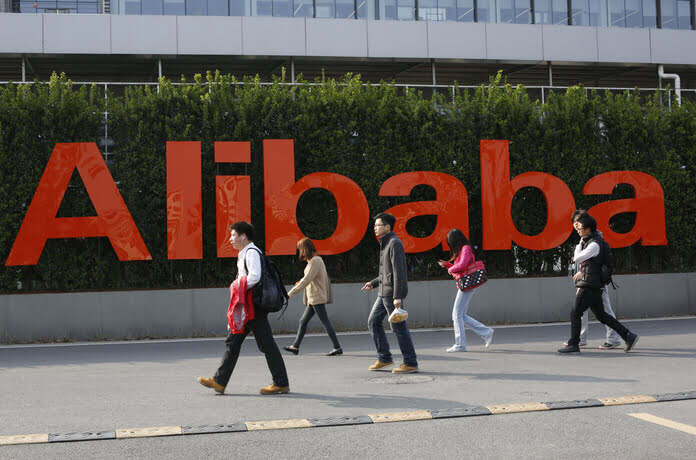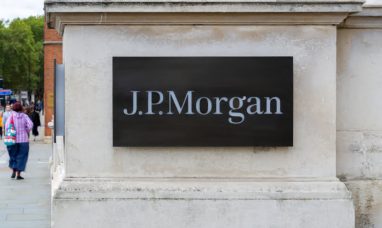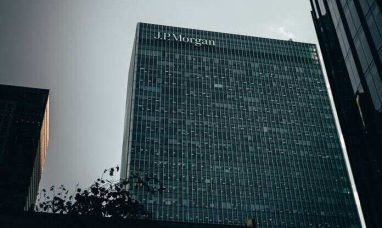Alibaba Group Holding Limited (NYSE:BABA)
Despite the company’s recent reorganization effort, Alibaba Group Holding Limited (NYSE:BABA) investors have suffered lately due to risk-off sentiments in Chinese markets.
Therefore, when investors evaluate the selling pressure from overseas investors, geopolitical dangers and regulatory worries are again front and center. Recently, Bloomberg reported that “overseas investors turned net sellers of mainland stocks in April after several months of net buying.”
Investors are justified in wondering whether China’s recovery is still on track, given the rather weak macroeconomic data on the Chinese economy in April.
Inflation rates in China are concerning since “consumer prices rose only 0.1% from a year earlier and producer prices experienced a 3.6% decline.”
Given Alibaba’s sensitivity to the Chinese consumer, investors may be wary of the second-half recovery thesis in BABA due to the increased execution risks it entails.
The stakes for a steady improvement in consumer spending have also increased. There hasn’t been much improvement in China’s job market, and the real estate market’s recovery from its slump is stalling out.
As such, “high-frequency indicators indicate a loss of momentum in home purchases,” implying that the initial pent-up demand from China’s post-COVID reopening has not seen sustained follow-through.
Recent fluctuations in copper prices (HG1:COM) are only one indicator of how the slowdown in China’s housing boom has affected the commodities market. In January 2023, copper futures fell to new lows as the early boost from confidence about China’s economic rebound wore off.
China’s GDP growth estimate for CY2023 may be in jeopardy due to a drop in mortgage lending and a slowdown in consumer spending.
Not only has China tightened its grip over consultants serving foreign investors, but geopolitical dangers have also increased. China’s government has expanded its “anti-espionage campaign,” which previously only targeted individuals, to include consultancy businesses.
Since China suspected Capvision of being a conduit for foreign information collection, the company’s headquarters were searched, and its personnel questioned.
Capvision has a wide client base in the country, “including 80% of the world’s top 20 consulting firms and 90% of top-20 China-focused global private equity and hedge funds.”
So, it’s understandable that investors would be frightened by the latest crackdown, wondering whether BABA and other China stocks are “uninvestable” again after last year’s crash.
That being said, there are undoubtedly growing execution risks that might derail Alibaba’s operational performance recovery progress. Revenue growth is expected to reach 8% in the December quarter (up from 2.6% in March), indicating an inflection point in the second half.
Therefore, investors should closely analyze Alibaba’s future earnings commentary when the firm reports FQ4 and FY23 results on May 18.
Investors need to hear management’s thoughts on how quickly the Chinese economy is improving and how it will affect consumer purchasing. Although I anticipate Alibaba to be bullish on the prospects of its various business divisions spinning out independently, it is important to note that the firm is still in the “early stages of consideration.” It may be a bad time to believe the claims that sellers on Alibaba have made about the unlocked worth of the company’s enterprises.
Nonetheless, after the current selloff, I determined that BABA has returned to extremely appealing zones, improving the risk/reward profile for patient investors.
Drop buyers have returned to BABA stock as it nears its March lows, hoping to prevent a further decline.
Over the previous two weeks, as selling pressure eased, I was also able to gather some positive purchasing momentum.
The latest consolidation should be supported by buyers, confirming the strength of the buy-the-dip strategy shown in March.
In particular, if BABA stock purchasers can defend the present levels, it would establish a positive “higher-low” price structure versus its lows in October 2022, signaling a sustained recovery.
As a result, the current market pessimism is a terrific chance for investors who weren’t swept up in BABA’s prior ascent to increase their holdings.
Featured Image: Megapixl









